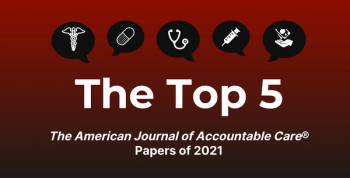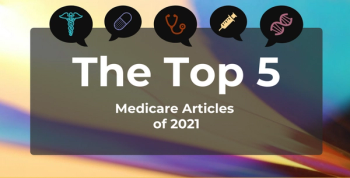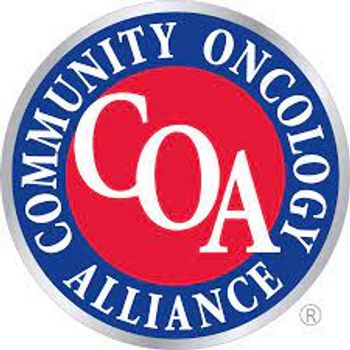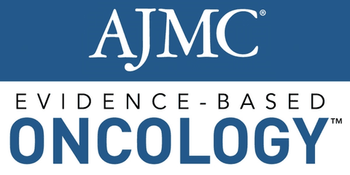
Geoffrey Boyce, CEO of Array Behavioral Care, discusses Array AtHome’s telebehavioral health services, which are now available to approximately 5 million Humana Medicare Advantage members.

Geoffrey Boyce, CEO of Array Behavioral Care, discusses Array AtHome’s telebehavioral health services, which are now available to approximately 5 million Humana Medicare Advantage members.

Pfizer and Moderna announced commencement of trials for Omicron-specific booster shots; 14.5 million Americans gained health coverage since November 2021; Medicare’s website for consumers to research nursing home staffing is up and running.

In its annual Medicare Shared Savings Program (MSSP) report, CMS said the number of accountable care organizations joining increased, but a trade group said the results should have been better.

Results of a study carried out in Iran found those with a recent history of depressive disorders were more likely to suffer from polypharmacy, or taking 5 or more medications concurrently.

Unvaccinated older adults are 49 times more likely to be hospitalized after contracting COVID-19; nursing homes are experiencing a major staffing crisis; major Alzheimer groups plan to meet with federal officials and lawmakers to protest the CMS drug proposal.

An analysis conducted in Japan among patients with acute decompensated heart failure (HF) revealed excessive polypharmacy at hospital discharge is associated with an increased risk of mortality after 1 year.

Medicare Advantage plans must leverage data-driven insights and omnichannel telepharmacy software to guide meaningful interactions with high-risk members and boost Star Ratings performance.

The randomized study consisted of an intervention delivered by general practitioners in the Republic of Ireland.

In a National Coverage Determination decision memo released Tuesday, CMS said it will gather public comment for 30 days about its plan to limit coverage for Alzheimer disease (AD) biologics that target plaque buildup in the brain to patients enrolled in certain clinical trials.

A Danish study observed emergency department (ED) health care providers and identified 5 factors that could play into patient involvement in medication discussions, particularly in older patients with polypharmacy.

CMS proposed rulemaking Thursday that would pass pharmaceutical price concessions to beneficiaries in Medicare Part D plans and make the medical loss ratio in Medicare Advantage plans more robust.

The most-read AJAC papers of 2021 analyze real-world programs to transform health care and provide insight into physician perspectives of health care and insurance.

This year’s most-read articles on Medicare covered topics including accountable care organizations, value-based payment, and star ratings.

Coverage from the 2021 COA Payer Exchange Summit.

Coverage from the 2021 COA Payer Exchange Summit.

The findings come from an algorithm that was based on 4 criteria-based tools, including 2 widely-used measures designed to ferret out inappropriate medication prescribing in older adults.

Three policies to revamp insurance consumer protections for health care delivery are explored, with highlighted areas for improvement being maternal health coverage and loosening of network adequacy requirements.

Antibodies produced by vaccinated people may be less successful at fighting against Omicron compared with other variants; Congressional leaders created a plan to lift the debt limit with only Democratic votes in the Senate, staving off Medicare cuts; cases of depression and anxiety among youths both doubled during the pandemic.

People aging with HIV have more drug–drug interactions compared with those without HIV, according to results of an observational study.

The authors of this study examined expense reports to understand how participants in Medicare’s Accountable Care Organization Investment Model spent to achieve program goals.

It’s right to acknowledge that dental, hearing, and vision are important for total health care for Medicare beneficiaries, said Melissa Andel, MPP, vice president of health policy at CommonHealth Solutions.

The announcement of a "strategic refresh" for payment models under the Center for Medicare and Medicaid Innovation offered no details on what practices should expect when the Oncology Care Model (OCM) expires in 2022.

A report from the Centers for Medicare and Medicaid Innovation confirmed that practices within the US Oncology Network and Tennessee Oncology participating in the Oncology Care Model (OCM) program have contributed significant savings to the agency.

To guide its growth and its forays into home-based care, SCAN Group recently announced a Diversification Advisory Council, a group of 6 leaders from inside and outside health care with expertise in health care technology, reimbursement, and consumer engagement.

Appeals court affirms decision to place a hold on the Biden administration's COVID-19 vaccine mandate for large employers; rising Medicare premiums linked with controversial Alzheimer drug; 3 states expand COVID-19 booster shot eligibility to all adults.

259 Prospect Plains Rd, Bldg H
Cranbury, NJ 08512
© 2025 MJH Life Sciences®
All rights reserved.
